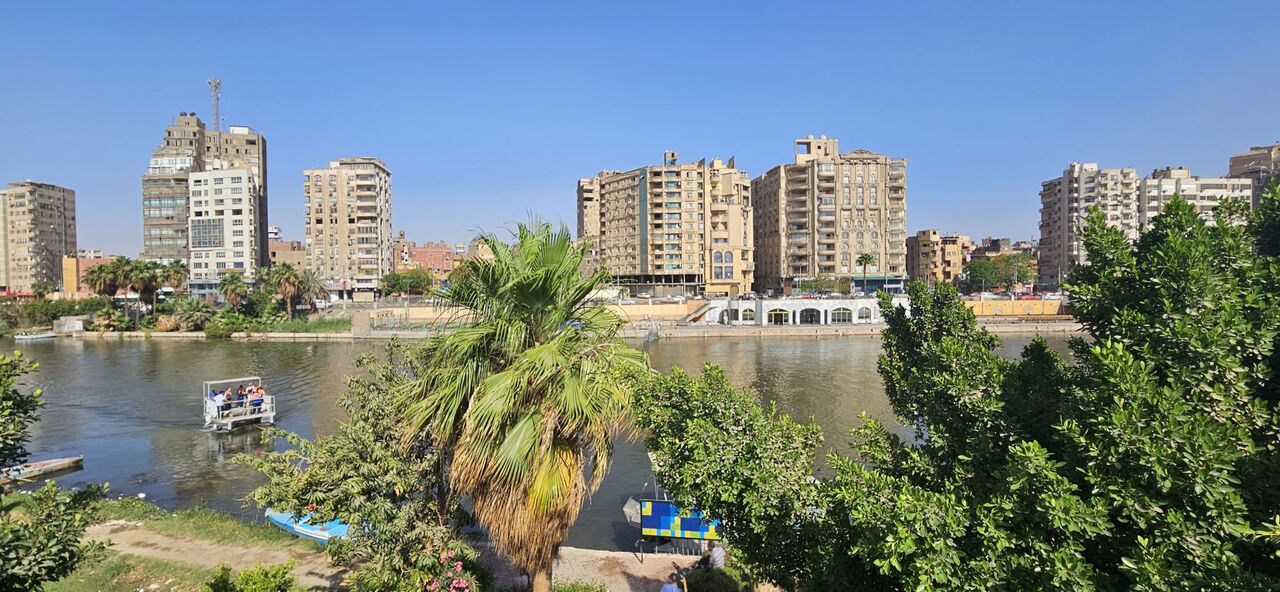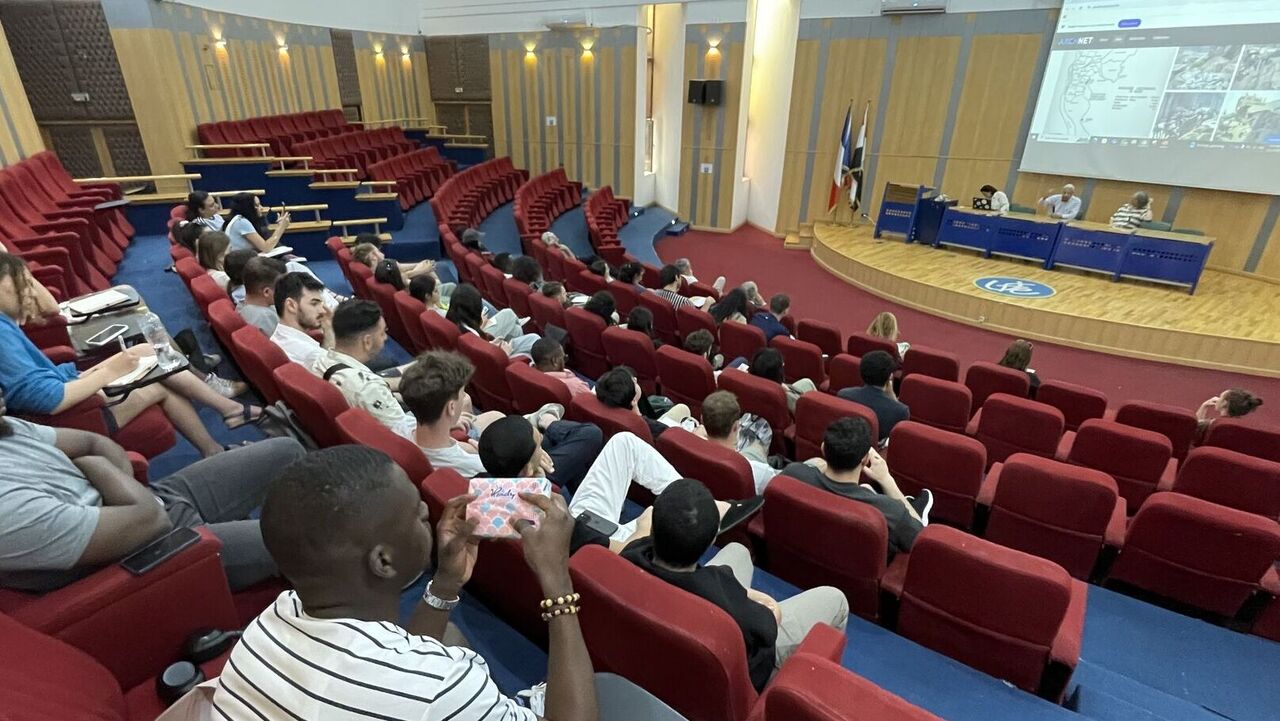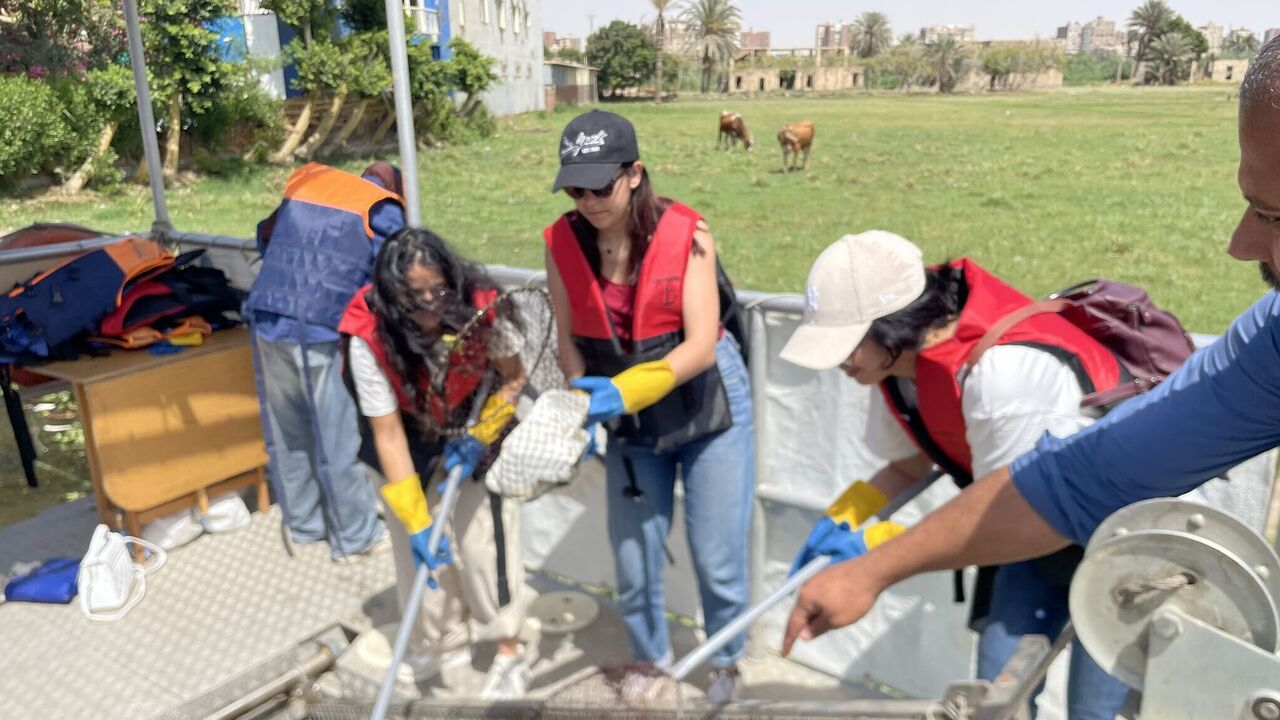Cairo, PITET Master's seminar - May 2025
Cairo is one of the most populous megacities in Africa and the Middle East, with over 20 million inhabitants. Its urban development has been scarcely planned, resulting in informal settlements, congested traffic, overburdened public services—and above all, severe pollution.
In order to turn it into a modern, green, sustainable and functional city by 2050, the Egyptian government has launched “Cairo 2050”, a national strategic plan for urban redevelopment and development aimed at reimagining the metropolis looking toward 2050.
Following the signing of the ISCI-MENA Chair in Cairo in November 2024, the PITET Master’s programme (Pilotage et ingénierie de la transformation écologique des territoires) had the opportunity to travel there from 11 to 17 May 2025 for its annual study seminar. Thanks to the Chair’s network, participants enjoyed privileged access to sites such as the renowned Mokattam district.
The PITET Master’s Programme
Established in 2005, the PITET Master’s degree aims to train students (at both bachelor and master levels) to assume roles responsible for environmental services in water and waste management. It is jointly accredited by Université Gustave Eiffel and the University of Cergy‑Pontoise (CYU), and benefits from a distinguished partnership with Veolia.
Each year, the academic team organises a study seminar intended to confront students with contemporary challenges while enabling them to interact with experts, local stakeholders, and fellow students from diverse academic and cultural backgrounds.
This year, thanks to the ISCI‑MENA Chair’s network, the seminar took place in Cairo from 11 to 17 May 2025, focusing on the sustainable management of water and solid waste in the context of Egypt’s ecological transition.
Approximately fifteen students travelled to the Nile’s south bank under the supervision of the masters’ co-coordinators, Katia Laffrechhine and Virginie Engrand Linder.
Participants and Partners of the ISCI-MENA Chair
The French University in Egypt (UFE)
Met during the signing of the Memorandum of Understanding at the Franco‑Egyptian Summit on Scientific and University Cooperation on April 7–8, 2024, in the presence of President Macron. The UFE is a flagship academic partner of the Chair in Egypt.
Aïda Nayer Ahmed, Director of the Architecture Programme, facilitated contacts and hosted the students in the lecture theatres of the El-Shorouk campus.
UN‑Habitat, co-founder of the ISCI‑MENA Chair
Prior to departure, Ahmed El Dorghamy presented UN‑Habitat’s activities and the implementation of the “Waste Wise Cities” tool—an effective policy framework for regulating waste management in Egyptian cities, addressing a major challenge.
On-site, UN‑Habitat consultants delivered two sessions on innovative solutions for water, sanitation, and waste management.
With four decades of experience working with Egypt’s Ministry of Environment, UN agencies, and the World Bank in the MENA region, engineer Mounir Bushra described the evolution of waste management in Egypt and the critical role of the Zabbâlin community.
“It is so rare to be able to visit—it’s likely the first and last time I explore this place…”
Exclusive Visits
Thanks to UN‑Habitat’s institutional network, seminar participants visited sites ordinarily inaccessible, including Garbage City in Mokattam. This remote district, rarely open to tourists, is home to the Zabbâlin, who for decades have collected, sorted and recycled the city’s waste. They operate informally but highly effectively.
Historically, this Coptic community had the unique right to raise pigs—critical for treating organic waste. Today, pig farming has given way to aluminium refineries, plastic recycling workshops and other waste-processing enterprises. Their systems recycle up to 80 % of waste collected—a globally remarkable rate.
Despite their essential role, the Zabbâlin often live in precarious conditions without official recognition. Local initiatives now aim to better integrate their work into Cairo’s waste management policy.
"It is so rare to be able to enter, likely the first and surely the last time I visit this place…" echoed the Egyptian side.
Seminar Week Agenda
| Monday | Visit to the Nile riverbanks with the NGO VeryNile |
| Tuesday | Lectures at the French University in Egypt presented by UN‑Habitat consultants |
| Wednesday | Visit to the Hydraulic Research Institute (HRI) and the New Administrative Capital |
| Thursday | Exploration of the Mokattam district |
| Friday | Cultural visits |





